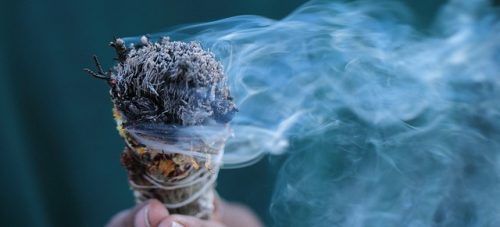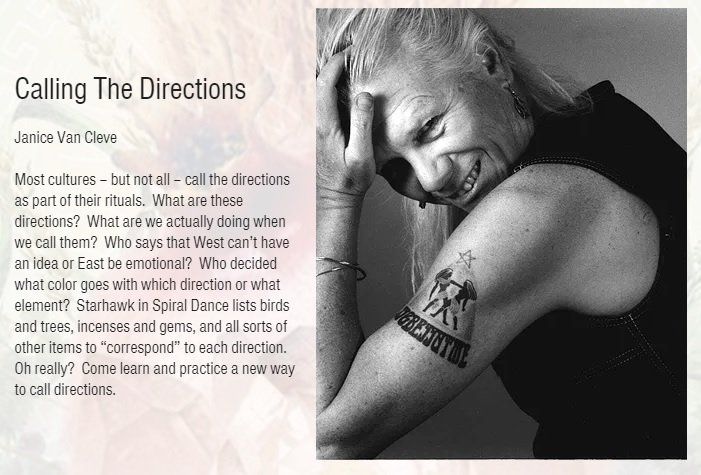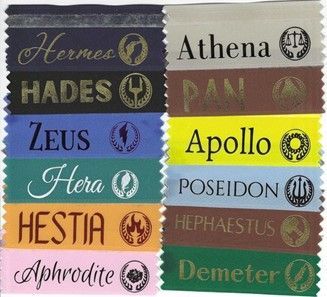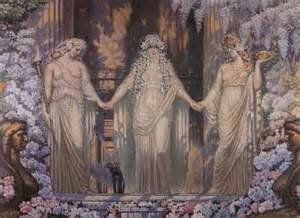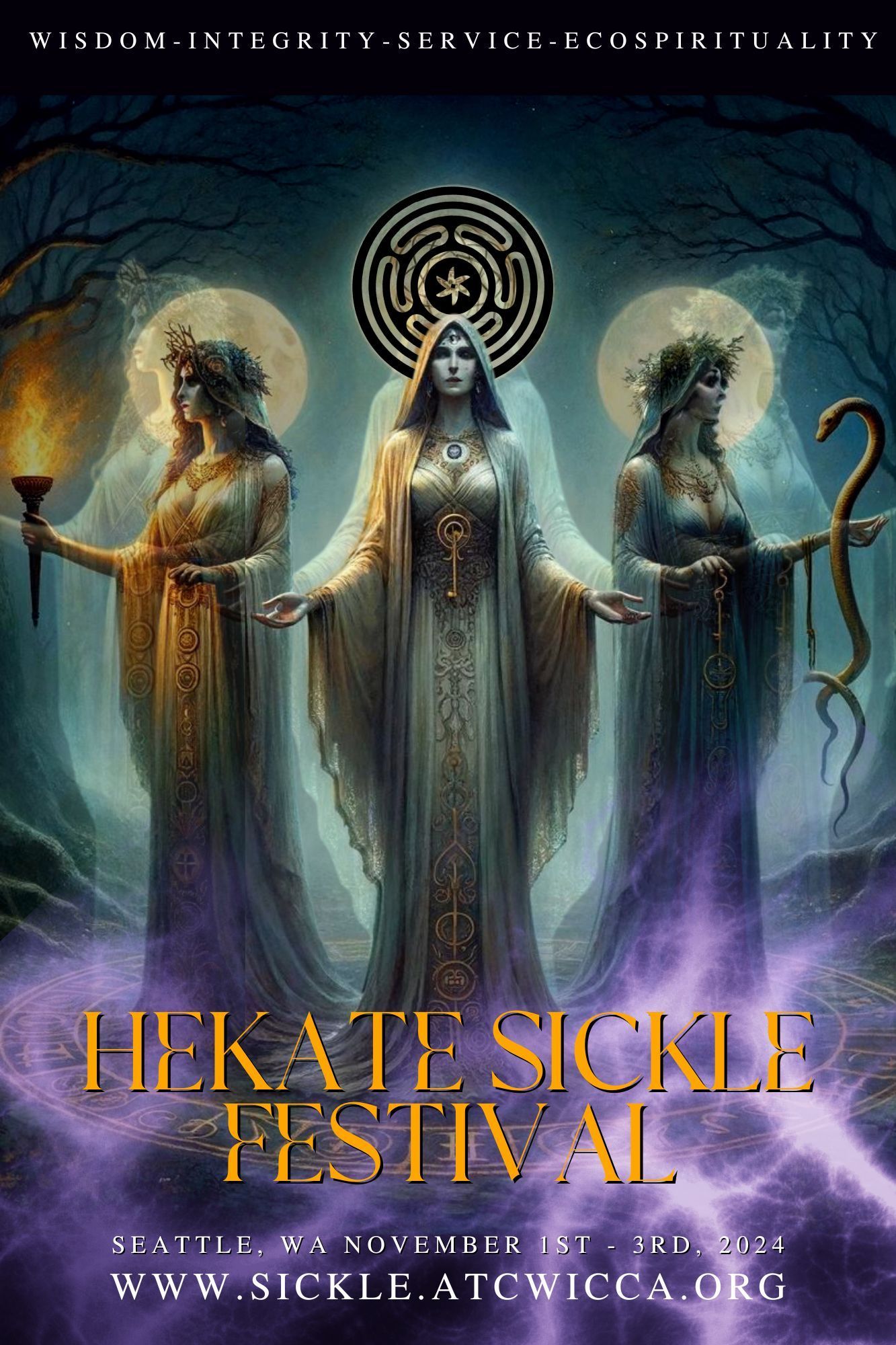Purification
"Blessed be, dear Sister! Enter the temple of the Goddess with clean hands and pure heart, that you may do honor to the Source of all Life." With these or similar words, the Women Of The Goddess Circle greets seekers and welcomes them into sacred space before we cast the circle. What does it mean to have clean hands or a pure heart? Are these simply empty words repeated by rote because they sound pretty, or is there a notion of cleansing and purifying attached to them? Is such cleansing and purifying necessary? Would the magic somehow fail if someone in the circle were not purified?
These are important questions. In times past our circle used to call this a rite of purification. Indeed it still has many of the hallmarks of a traditional purification. Sometimes we smudge the seeker with sage. Sometimes we splash her with water or stroke her with a sprig of juniper. In spring we may use a bouquet of flowers. Afterwards, as a sign that the purification had been accomplished, we used to anoint her with oil on the forehead. This was a symbol that she is now a sacred person set apart and worthy of conducting the Sabbat about to commence.
Rites of purification abound throughout history and in many religions. Some Jews are scrupulous about washing before rituals. The ruins of Masada and other archaeological sites still show the remains of their mikvahs or ritual baths. Some Jews even consider many actions and foods and even associations with some persons as "ritually impure." Catholics symbolically carry on this tradition with holy water fonts at the entrances of their churches. Muslims have fountains in their mosques to wash before prayers. They also fast before holy days, and remove their shoes upon entering a mosque. In the ancient days of the Greeks, pilgrims to the rites of Demeter washed before they entered the sacred precincts of Eleusis. Aztec merchants bought special slaves and bathed them prior to sacrificing them on the temple steps. Notions of purifying may even go back as far as the Sumerians. The story of Innana's descent into the underworld relates that she had to shed her worldly raiment and enter naked.
Purification also has a negative connotation. It implies that something is impure and must therefore be cleansed before it is worthy. This idea finds its most extreme expression in the notion of original sin. According to those who believe in it, original sin is inherited. This means that an innocent baby just born starts life already in debt. A baby must be cleansed in baptism to be worthy for salvation, which in itself is a purification because it implies that even the baptized must be saved from something.
Pagans, on the other hand, do not believe in the notion of sin, original or otherwise, and do not need to be saved from anything. Paganism is a nature religion. Earth and soil are holy elements to us. We worship outdoors, weather permitting, and barefoot if possible to emphasize our dirt roots. We ground ourselves and usually announce our connection to the four directions, the earth and sky, and to all things, before we work our magic. There is nothing in the world or under our fingernails that requires cleaning to make us worthy for our work. We are born holy and sacred and we live intrinsically holy and sacred. We value all life and all elements as sacred.
So what's to clean? What is there to purify? Bring dirt and feathers, ashes and slime to our altars. Are these not all part of Gaia? What person would we dare to judge impure? Are not all people part of Gaia as well? Not to mention, of course, that nobody appointed us to judge others anyway.
That is why the Women Of The Goddess Circle today does not call our entrance rite a purification rite anymore. We call it a greeting, a blessing or a welcome. We consider our sisters to be just as holy before we splash them as afterwards. Nobody is pure or impure. We just are who we are and we bring our authentic selves to the work of worship that we do. Our anointing does not make us any more worthy than we already were.
I should explain that we are an open circle, not a coven. We welcome all adult women of good intent who sincerely subscribe to our purpose. We do not do public rituals, but we do advertise publicly. We have a listing on the Witchvox website and our brochures are in local bookstores and at conferences. We invite women who approach us to a planning meeting before they attend any rituals. This way they get to meet us, we get to meet them, and they get to see that we plan our rituals from the ground up by ourselves and their participation is encouraged.
This is not to say that washing and anointing serve no purpose. Quite the contrary. Washing or smudging is still effective as a symbol. It symbolizes cleansing away the cares of the mundane world so we can be fully present and focused on the ritual at hand. It is like taking off a coat when you come indoors. You take off the coat so you can be more relaxed and open in the shelter of your home. Without the bulk of the coat, you have more freedom of movement and you reveal the beauty of your inner clothing. There is nothing impure about the coat and it will be there to put on again when you have to go back out into the world.
In the same way we anoint the cleansed woman to acknowledge the sacred energy she brings to the circle. We mark her as a woman set apart. She is no longer an ordinary woman. She is a priestess. She will be contributing her voice, her movements, her intention, and her energy to the ritual work of the circle. All are anointed with the same oil to symbolize that, in jeans or in robes, as newcomer or veteran, each woman's contribution is welcomed and valued equally with everyone else's. She is never considered impure or unworthy. Rather, anointing is like a special badge that announces that she belongs here.
So when it comes to treating an injury, preparing or eating food, or simply smelling good, we certainly support and advocate washing thoroughly. We do appreciate it when women come to our circle fresh and clean, if only to make our company together more pleasant. Ritually, however, we feel purification is unnecessary. Our spirit selves are fine, just as they are. Blessed Be!
Meet Janice Van Cleve in person and attend her workshop at this year's Spring Mysteries Festival
Join Our Mailing List
We will get back to you as soon as possible.
Please try again later.

